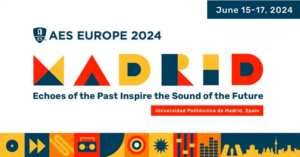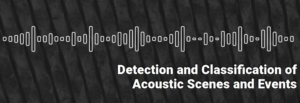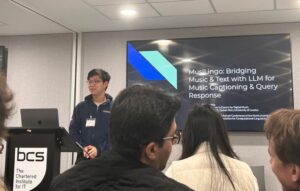AIM at AES Europe 2024
 On 15-17 June, AIM PhD students will participate in the Audio Engineering Society’s 2024 European Conference (AES Europe 2024). AES is a leading professional body in the field of audio processing. The theme of this year’s European conference is “Echoes of the Past Inspire the Sound of the Future”. All papers will also be published in the Journal of the Audio Engineering Society (JAES).
On 15-17 June, AIM PhD students will participate in the Audio Engineering Society’s 2024 European Conference (AES Europe 2024). AES is a leading professional body in the field of audio processing. The theme of this year’s European conference is “Echoes of the Past Inspire the Sound of the Future”. All papers will also be published in the Journal of the Audio Engineering Society (JAES).
AIM students will present the following papers at AES 2024:
- Time-of-arrival Estimation and Phase Unwrapping of Head-related Transfer Functions With Integer Linear Programming, by Chin-Yun Yu, Johan Pauwels, and György Fazekas. In this paper, the authors solve two tasks for head-related transfer functions: time-of-arrival and phase unwrapping. They evaluate an algorithm which uses graph-based data structure and integer linear programming – achieving state of the art results.
- The Role of Communication and Reference Songs in the Mixing Process: Insights From Professional Mix Engineers, by Soumya Sai Vanka, Maryam Safi, Jean-Baptiste Rolland, and György Fazekas. The authors identify how context can be incorporated into design of AI-based user-centric auto mixing tools. This is achieved through semi-structured interviews with professionals followed by a questionnaire-based study which corroborates identified themes.
You can find the full schedule at: https://aeseurope2024.sched.com
See you all there!
 AIM PhD student
AIM PhD student  AIM PhD candidate Yinghao Ma presented his work entitled “MusiLingo: Bridging Music and Text with Pre-trained Language Models for Music Captioning and Query Response” at a recent workshop hosted by the British Machine Vision Association and the Society for Pattern Recognition in London, on April 24, 2024. MusiLingo is a system merging pre-trained music encoders with language models to enhance music-text interaction. It aims to make music more interpretable for everyone, ranging from composers to those that are hard of hearing, using a projection layer that integrates music embeddings into language models for effective text generation. More information about the workshop can be found
AIM PhD candidate Yinghao Ma presented his work entitled “MusiLingo: Bridging Music and Text with Pre-trained Language Models for Music Captioning and Query Response” at a recent workshop hosted by the British Machine Vision Association and the Society for Pattern Recognition in London, on April 24, 2024. MusiLingo is a system merging pre-trained music encoders with language models to enhance music-text interaction. It aims to make music more interpretable for everyone, ranging from composers to those that are hard of hearing, using a projection layer that integrates music embeddings into language models for effective text generation. More information about the workshop can be found